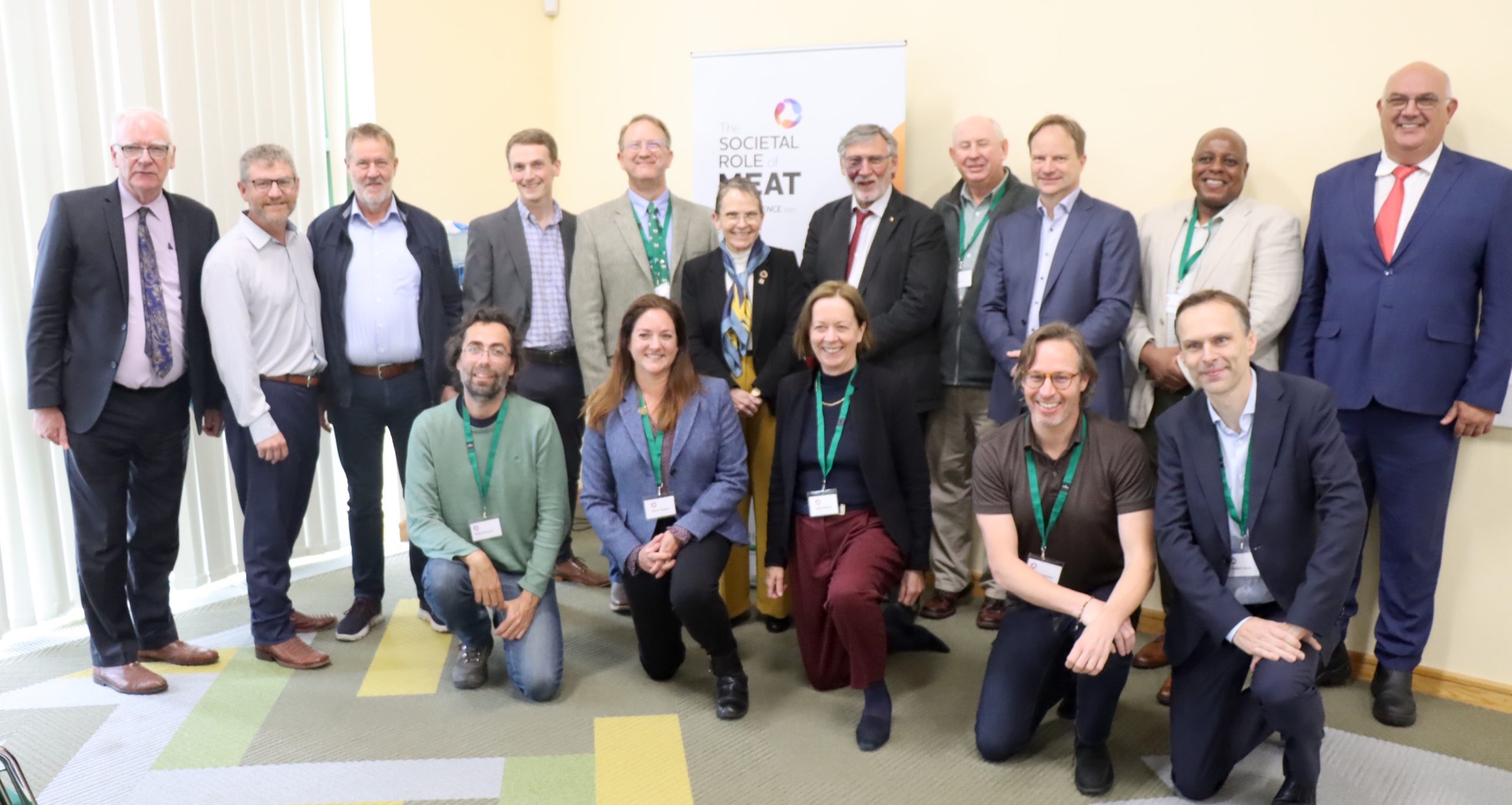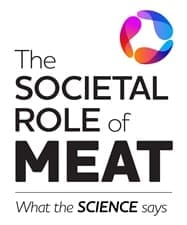
Presenters at the two-day summit on the societal role of meat in Dublin included Declan Troy from Ireland, Jason Rowntree, United States; Willhelm Windisch, Germany; Nick Smith, New Zealand; Peter Ballerstedt, US; Shirley Tarawali, Kenya; Paul Wood, Australia; Neil Mann, Australia; Peer Ederer, Switzerland; Max Makuvise, Zimbabwe; Theo de Jager, South Africa; Pablo Manzano, Spain; Diana Rodgers, US; Alice Stanton, Ireland; Bradley Johnson, US and Frederic Leroy, Belgium.
SCIENTISTS from around the world have gathered in Dublin to examine claims regularly levelled against meat and livestock and to confront the simple question: What does the science say?
The unequivocal conclusion from two days of detailed presentations by scientific experts from Australia, the US and across Europe is that the highest standards of science do not justify or support the “simplistic and reductionist” war being waged against meat.
 In fact, while challenges remain to minimise the livestock farming and meat sector’s environmental footprint, a clear theme of the many academic assessments presented in Dublin was that removing livestock and meat from landscapes and human diets would lead to potentially disastrous consequences for both.
In fact, while challenges remain to minimise the livestock farming and meat sector’s environmental footprint, a clear theme of the many academic assessments presented in Dublin was that removing livestock and meat from landscapes and human diets would lead to potentially disastrous consequences for both.
Livestock systems are “too precious to society to become the victim of simplification, reductionism or zealotry,” a document signed by the scientists present – billed the “Dublin Declaration” – emphatically states.
Scientists from around the world are now being called on to sign the Dublin Declaration (see link here) which aims “to give voice to the many scientists around the world who research diligently, honestly and successfully in the various disciplines in order to achieve a balanced view of the future of animal agriculture”.
It also pointedly warns against “one-size-fits-all agendas”, such as drastic reductions of livestock numbers which could lead to “environmental problems on a large scale”.
Full outcomes and evidence from the two-day International Summit on the Societal Role of Meat will be published in a special addition of the Animal Frontiers in March 2023.
Simultaneous events highlighting the science supporting the positive role of livestock farming and meat production are expected to be held at the same time, including in Australia.
Evidence presented at the forum reinforced several take home messages including that:
- For millennia, livestock farming has provided humankind with food, clothing, power, manure, employment and income as well as assets, collateral, insurance and social status.
- The highest standards of bio-evolutionary, anthropological, physiological, and epidemiological evidence confirm that the regular consumption of meat, dairy and egg, as part of a well-balanced diet is “advantageous for human beings”.
- Livestock-derived foods are the most readily available and “bio-available” source of high-quality proteins and several essential nutrients and other health-promoting compounds for people all over the world”.
- Farmed and herded animals are irreplaceable for maintaining a circular flow of materials in agriculture, by recycling in various ways the large amounts of inedible biomass that are generated as by-products during the production of foods for the human diet.
- Livestock are also optimally positioned to convert these materials back into the natural cycle and simultaneously produce high-quality food.
- Ruminants in particular are also capable of giving value to marginal lands that are not suitable for direct human food production.
- Additionally, well-managed livestock systems applying agro-ecological principles can generate many other benefits, including carbon sequestration, improved soil health, biodiversity, watershed protection and the provision of important ecosystem services.
- Livestock ownership is also the most frequent form of private ownership of assets in the world and forms the basis of rural community financial capital. In some communities, livestock is one of the few assets that women can own, and is an entry point towards gender equality.
- Policy recommendations need to be based on clear, scientific evidence and must not not ignore the protections against nutritional deficiencies afforded by animal sourced foods
- Dramatic reductions in livestock numbers would heavily impact poorer countries. At least half a billion people around the globe are “totally dependent on livestock” for their livelihoods.
“Livestock is the millennial-long-proven method to create healthy nutrition and secure livelihoods, a wisdom deeply embedded in cultural values everywhere,” the Dublin Declaration states.
“Sustainable livestock will also provide solutions for the additional challenge of today, to stay within the safe operating zone of planet Earth’s boundaries, the only Earth we have.”
Many who spoke at the summit over the two days called for the “polarised” and “binary” nature of public discussions around meat and livestock to end.
Ireland’s Minister of State at the Department of Agriculture, Martin Heydon, noted in his opening remarks that “so much of what we see and read and consume has been “boiled down into sound bites that have been very much simplified”.
It has bever been more important to move forward with an accurate and scientific understanding of meat’s role in society, he said.
“Consumers need to trust their food and where it comes from.
“And where does that trust from? It comes from science.”
Professor Frank O’Mara, the director of Ireland’s agricultural research and development organisation Teagasc, which hosted the summit, said the role of livestock has never been as questions as much as it is being questioned now.
“We all understand and get that we need to have a very sustainable system of agriculture,” he said.
“The point we would make is you can’t have a sustainable and properly function food system without livestock being part of that, because of the circular process of crop production and animal production.
“So we certainly need livestock to be part of the food system to feed the 10 billion people we will have on this planet shortly, and do it in a sustainable manner.”
“When there is fog around, the one thing that helps clear the fog is evidence-based information,” he said.
South African farmer and former president of the World Farmers Organisation, Dr Theo de Jager, said farmers needed to be part of the global conversation: “Farmers are the ones who everyone is talking about but no one is talking to,” he said.
About 200 people attended the summit including scientists, agricultural representatives and policy-makers from around the world, including around a dozen from Australia.
It was two years in the making and was coordinated by a committee comprising Peer Ederer, Founder, GOALSciences, Switzerland; Frédéric Leroy, Professor, Vrije Universiteit Brussel, Belgium; Rod Polkinghorne, CEO, Birkenwood International, Australia; Graham Gardner, Professor, Murdoch University, Australia; Collette Kaster, CEO, American Meat Science Association, USA; Mohammad Koohmaraie, President, Meat Division, IEH Laboratories and Consulting Group, USA and Declan Troy, Assistant Director of Research, Teagasc, Ireland.
- More detailed reports on key presentations from “The Societal Role of Meat- What the Science Says” summit in Dublin will follow on Beef Central over coming days and weeks. Beef Central funded its own visit to Dublin for the forum.



Muy bueno el artículo de los científicos
Translation: “Very good scientific article”
Excellent article!
Why is southamerica out of this debate? We need to move foreword!
👍👍💪💪👏👏👏👏
Muy buen artículo. esto deberían saberlo muchos politicos en nuestro y en otros países.
y ademas hay que tener enn cuenta la calidad de la proteína animal que esta muy por erriba del 100.
English translation: “Very good article. This should be known by many politicians in our and other countries.
and also you have to take into account the quality of animal protein that is well above 100.”
Many farmers are increasing ground cover in semi arid regions using holistically managed grazing principles. It has saved my business
Undoubtedly all of this will be hotly disputed by the environmental zealots who unfortunately do not have the intellectual capacity to engage in a balanced discussion consequent to their unwillingness to acknowledge another point of view.
That given, the importance of the messages from this forum cannot be overstated.
What these messages represent could be rhetorically described as the ammunition needed for the fightback, or the proof that farmers were always right about their industry, or that the messages are the voice the industry has always had but not previously used.
Indeed, the messages are to some extent all of these things, but more importantly, perhaps primarily importantly, they identify that food production has to be considered an environmental “no go” area while ever there are other industries and activities which have failed to reach environmental neutrality.
This has to be the basis on which the war against the environmental zealots has to be waged. Food production is a “no go” area, and there must be no compromise, no virtue signalling (eg. methane programs or similar), and no let up.
Energy security is important, but if we have no food to process and cook, the value of energy is lessened.
Fuel security is important, but if we have no produce to harvest and transport, the value of fuel is lessened.
Food security is paramount.
The UN and WEF are not elected officials
I did not see the word fat mentioned once. Having fat marbling as the basis for competitions leads to more fat.
Having inefficient cattle on grain for 400 to 500 days is not an efficient way to feed the world
Thank you James Nason and Beef Central for attending this summit. This meeting of some of the world’s leading scientists should play a vital role in defending meat production and the role it plays in providing a balanced environmental outcome.
The “simplistic and reductionist” war being waged against meat production and livestock farming rarely receives a balanced debate.
As gloriously quoted, “our industry is too precious to society to become the victim of simplification, reductionism or zealotry,”
There is a pivotal need for conferences such as this meeting of minds in Dublin, to give a balanced opinion, backed by science.
Absolutely wonderful.
Best thing to happen in the livestock industry in 30 years!
What a relief to be presented with an unemotional calm point by point rebuttal of both the claimed scientific basis of the anti-meat, anti-agriculture activists campaigns and thus their baseless conclusions.
Pray God or whoever you would pray to that scientists of every nation and discipline come out of academic hiding and sign this crucial Dublin Declaration.
It is a thousand miles of harsh dry political territory between where we have come to be, and where we need to get to.
But this feels like a start.
Well said Richard.
Our peak industry organisations, including MLA, need to step up and support and organise summits similar to this one held in Dublin to respond to the never ending woke criticism that keeps being poured onto meat production.
The real facts which must be broadcasted from every TV and RADIO station and published in every paper and magazine that has vilified livestock. Take note social censorship teams. This is factual information which can be shared.